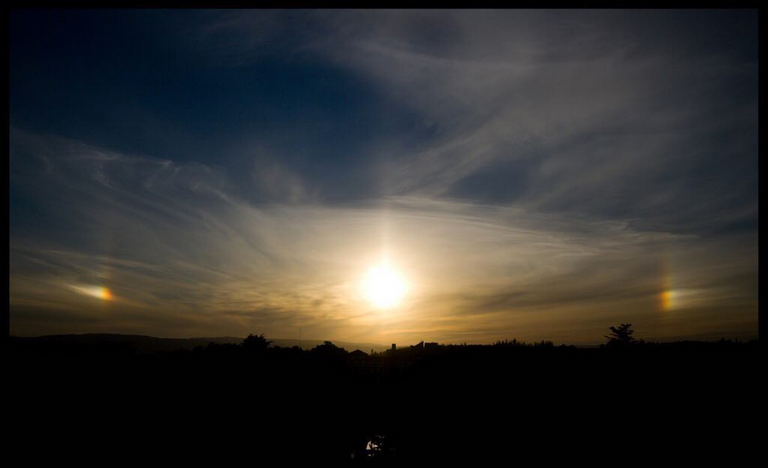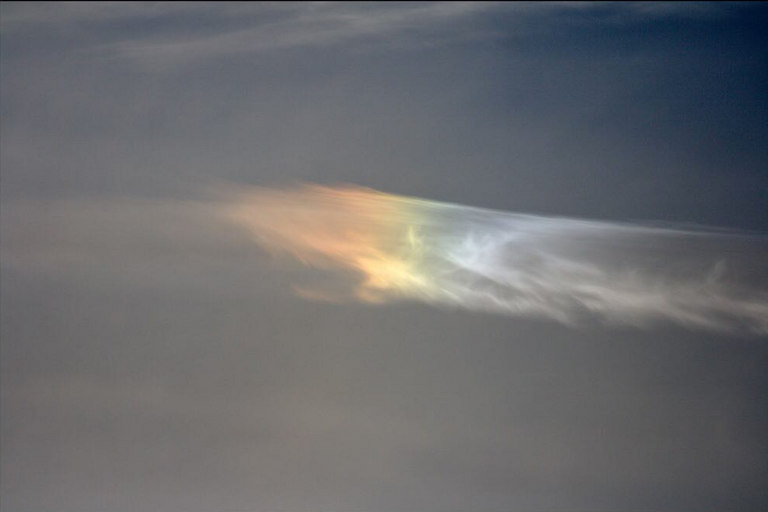In the last post (https://steemit.com/solarhalo/@jonshock/the-beauty-of-the-22-degree-solar-halo) we saw how a 22 degree solar halo was created from hexagonal column crystals of ice. These crystals take all different orientations in the sky and thus give rise to the light that reaches us from an entire circle of angles around the sun.
However, if the conditions are slightly different, the majority of crystals in the clouds will be of flat, plate-like form. These tend to like to lie horizontally in the air and so the effect is slightly different from that of the column crystals. If one of these crystals is above the sun, from the point of view of a viewer on Earth, the light which reaches it will be deflected, at 22 degrees to the horizontal, and will not reach the eyes of the viewer. In fact, at most positions in the sky, the light will be deflected away. However, at the points precisely to either side of the sun, and at 22 degrees, the light which passes through these crystals will be exactly deflected to the person for whom the position of the crystals is at this angle. They will thus not see a full halo, but two bright spots of light, one to the left, and one to the right of the sun. These spots of light are known as sundogs: https://www.atoptics.co.uk/halo/parhelia.htm
If they were simply two spots, that would be one thing, but just as with the 22 degree halo, because of the refractive properties of ice, the colours are split, and so these spots are seen as multicoloured and slightly hazy images of the sun. When the conditions are perfect, these can be incredibly bright.
Here are is an image of sundogs that I took a few years back in Santiago de Compostela, Spain:

In fact, there's another effect going on here, but I'll leave that for another time.
Generally the best time to spot sundogs is when the sun is low in the sky and there is plenty of cirrus cloud.
If you are lucky, then a sundog can appear when a whisp of icy cloud passes through exactly the right point in the sky. Here is an image I took in the UK, zoomed in to a sundog appearing just momentarily on a cold winter's day:

Keep an eye out for sundogs, particularly through the winter. They are subtle, but beautiful.
Fantastic photos. I've always felt that sundogs are more common on cold days -- is this true? I suppose you could have ice in the upper atmosphere even on a hot day.
Yes they are more common on cold days, but they can happen during the summer too. It just means that the ice can form at lower altitudes on a cold day.
You got a 4.00% upvote from @getup
1 SP, 5 SP, 10 SP, custom amount
► ► For Restream send 0.026 SBD
to @getup with the post link as the memo.

Want to promote your posts too? Send at least 0.005 STEEM DOLLAR or STEEM to @getup with the post link as the memo and receive a upvote! More profits? 100% Payout! Delegate some SteemPower to @getupYes they are more common on cold days, but they can happen during the summer too. It just means that the ice can form at lower altitudes on a cold day.